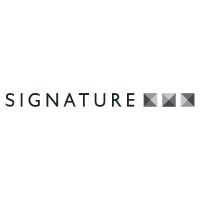

Executive Vice President, General Counsel & Corporate Secretary | Forvia



Jill Greene
Executive Vice President, General Counsel & Corporate Secretary | Forvia
Team size: 110
Career Biography
Jill Greene serves as Executive Vice President, Group General Counsel and Board Secretary, for FORVIA SE (EUR XPAR: FRVIA), and is based in Nanterre, France. In this capacity, she leads a team of 100+ professionals within Legal, Compliance, Risk Management, and Internal Audit Functions. Prior to being nominated as Group General Counsel in 2023, Greene led Faurecia’s North America and Global Regions legal teams, which include a network of local counsel in the various global regions in which FORVIA operates. In addition to her current role, Jill Greene serves on the HELLA Shareholders’ Committee and is the Executive Sponsor of FORVIA’s Diversity and Inclusion Program. Prior to joining FORVIA, Jill served as Senior Associate General Counsel for Transocean Ltd. (NYSE: RIG), where she was responsible for the U.S. Securities and Complex Transactions (M&A) Legal Department. During this time, Greene drove the initial public offering of a subsidiary entity while managing complex SEC disclosures and navigating a highly-publicised proxy contest. Greene has held various in-house and law firm positions in telecommunications, energy and automotive sectors. She received her formative legal training at the law firms of Baker Botts L.L.P. in Houston, Texas and Moye White in Denver, Colorado. Prior to practicing law Greene spent nine years in non-legal business contributor roles, first in public relations and then as a lead procurement and negotiation specialist for two large U.S.-based telecommunications companies. Jill Greene has been previously recognised by the Houston Business Journal as “Best Associate General Counsel | Large Legal Department.” As a former collegiate basketball player, Greene now volunteers for various youth sports initiatives. She has been certified as a Court Appointed Special Advocate and is passionate about giving a voice to children who have been placed in the U.S. foster care system. Greene earned a Bachelor of Arts degree from St. Olaf College (Northfield, Minnesota), a Juris Doctorate from University of Denver (Denver, Colorado), and holds a Certificate in Women’s Leadership from Cornell University (Ithica, New York).
FORVIA, is a global automotive technology supplier, which comprises the complementary technology and industrial strengths of Faurecia and HELLA. With around 250 industrial sites and 78 R&D centers, over 150,000 people, including more than 15,000 R&D engineers across over 40 countries, FORVIA provides a unique and comprehensive approach to the automotive challenges of today and tomorrow. Composed of six business groups and a strong IP portfolio of over 13,000 patents, FORVIA is focused on becoming the preferred innovation partner of auto manufacturers worldwide. In 2024, the Group achieved a consolidated revenue of €27bn worldwide.
What are the most significant cases, projects or transactions that you and your legal team have recently been involved in?
As with the automotive industry generally, my team has managed through changing market conditions, global geopolitical disruptions and execution of the Company’s sustainability and operating strategy, despite significant unpredictability of our segment. For example, with each change in U.S. tariff regulations, we have performed risk and compliance assessments to ensure we are operating efficiently despite the complexity of these regulations.
How do you approach managing legal aspects during periods of instability or crisis to ensure the organisation’s resilience?
It starts with people. Having the right legal expertise in-house and expert support of our external firms, we are able to adapt to instability and crisis. We are called upon often to be the calm in the storm and to navigate along side our businesses through uncertainty. Having a team of pragmatic, calm and clever professionals drives an attitude that we can manage anything that may confront our business.
What strategies do you employ to ensure the successful digital transformation of a legal department while maintaining compliance with your country’s data protection laws?
Clear boundaries and frequent checks. It starts with having the right expertise who can clearly articulate the data protection laws across our global footprint. Our policies must be clear and understandable, even if the laws are complicated. From there, we need to remind and check our deployment to be sure we protect the data of our stakeholders. We do not take risks when it comes to protecting data.
Have you had any experiences during your career as a lawyer that stand out as particularly unique or interesting?
Moving to France as an American lawyer has been the experience of a lifetime. In particular, shifting from an adversarial to an inquisitorial system has taught me a lot about managing conflict and achieving a fair result for the parties. The interaction of regulations and the positioning of France on a global stage has been a key challenge. After four years in France, I still find new and interesting challenges in the law and country.
Based on your experiences in the past year, are there any trends in the legal or business world that you are keeping an eye on that you think other in-house lawyers should be mindful of?
In terms of things in-house lawyers can effect or control, I think we should all be mindful of the use of AI, both within our companies and as it is employed by our external consultants, counsel and counterparties. The AI applications in Legal are particularly interesting and helpful, but cannot replace the nuance that an experienced lawyer has. Developing young talent, in particular, to spot flaws in AI analysis/work product is important, as is setting the parameters of when AI should and should not be used. With regard to external advisors, it is important to understand how they are deploying and monitoring AI work product, and agree on how efficiencies should be deployed within the work done for our companies.
What factors influence your team’s decision to use external legal services versus handling matters in-house, and what criteria are used to evaluate their performance?
Expertise, efficiency, bandwidth and cost. Our legal team has experts and generalists in the frequent topics facing the business generally, but where a topic arises that you simply need an expert who has handled the precise issue more regularly, or it is not practical to develop the expertise in-house for the limited topic, we go to outside counsel. Obviously there are also significant and infrequent matters where we need to supplement with counsel. While cost is clearly a driver in any business, it’s not just about the hourly rate. We look at efficiency, the relationship with the firm, value added services provided, proactivity, speed and conflicts of interest as motivators to give one firm the matter over another. One way to guarantee an engagement is limited is overbilling or overstaffing a matter. We are fortunate to work with firms that partner with us and tailor the support to the constraints of any given matter.